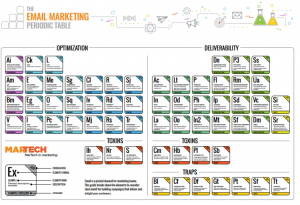
Regardless if you are the seller or buyer of a small business, it is not how much money the seller gets for the business but how much they get to keep at the end that will shape the negotiations and the final sales price. Taxes can take a huge bite out of the deal, which is why deal structure is a key ingredient in obtaining a reasonable price for a small business. A business purchase can be structured as either an asset purchase or stock purchase.
Basically, businesses are purchased either as an asset purchase or stock purchase. That said, most sales of small businesses are handled as an asset purchase. In fact, if the business being sold is a sole proprietorship, a partnership, or an LLC that doesn’t issue stock, the transaction is always going to be an asset purchase. While the sale of a corporation can also be treated as an asset purchase, it can be structured as a stock purchase.
The general rule when deciding whether you want to do a stock purchase sometimes called a stock sale or an asset purchase also called an asset sale is that buyers prefer to buy assets and sellers prefer to sell stock. That’s the general rule, whether for tax or legal purposes.
Buyers prefer to buy assets and sellers prefer to sell stock
The Seller’s Point of View
From the seller’s point of view in business purchases, there are major tax and legal differences between a stock purchase and an asset purchase.
Stock Purchase
From a tax perspective, a stock purchase will generally result in capital gains treatment for the entire transaction. Capital gains treatment is a very favorable treatment, given that the capital gains rates are much lower than ordinary income rates.
From a legal perspective, when a buyer buys a company structured as a stock purchase, the buyer assumes the liabilities of the business being sold. This includes liabilities that happened in the past and after the sale date.
Asset Purchase
From a tax perspective, an asset purchase transaction for a C corporation will result in double taxation. First, the corporation will pay taxes on the sale of all of its assets. Then, the individual will pay taxes when they liquidate and take all those dividends or distributions out of the corporation, hence the term “double taxation”.
With a flow-through entity such as an S corporation, the proceeds of some of the assets that are sold will be subject to ordinary income tax treatment which is often higher than capital gains treatment.
From a legal perspective, when a buyer acquires a company structured as an asset purchase, the buyer will form a new company to hold the assets, while leaving it up to the seller to maintain the old entity with all of its past liabilities. The buyer will only be responsible for any liabilities from the purchase date forward and not for those prior to the sale.
The Buyer’s Point of View
From the seller’s point of view in business purchases, there are major tax and legal differences between a stock sale and asset purchase.
Asset Purchase
From a tax perspective, the reason buyers generally prefer an asset purchase is that they get a step-up in basis. A step-up in basis means that the buyer gets to reset the clock on all of the value they paid for. The new stepped-up value they obtained is depreciating in the coming years, which allows them to save taxes in subsequent fiscal years. As a buyer, you want to create as much depreciation as you can, so you can add this noncash flow expense to your annual profit and loss expenses and show a lower profit for tax purposes.
From a legal perspective, when you do an asset purchase, you leave behind any potential hidden liabilities that the company may have. Consequently, it is less risky for the buyer to buy a business as an asset purchase.
Stock Purchase
From a tax perspective, with a stock purchase, the buyer doesn’t get that step-up in basis. The buyer assumes the existing depreciated value of the assets from the seller. The buyer only gets any remaining depreciation of what the seller has left, if any, which will be substantially lower and will not provide the tax write-downs in future years compared to a deal structured as an asset purchase. In fact, what is even more important is that the buyer does not get to include the premium or the goodwill value that the buyer paid for so they can depreciate it. Often buyers are not willing to accept that reduction in potential depreciation which is why most small business transactions tend to be asset purchases.
From a legal perspective, when a buyer acquires a company structured as a stock purchase, the buyer assumes the liabilities of the business being sold. This includes fiscal and legal liabilities that happened in the past and after the sale date.
Deal Structure and Taxes
Once you agree on a final price for the business, the seller and buyer must agree on the portion of the purchase price that applies to the tangible assets vs. intangible assets (e.g. goodwill). The allocation of the purchase price dictates what portion of the sale price the seller can treat as capital gains vs. ordinary income tax. In turn, this could dramatically affect the net proceeds of the seller and future tax treatment for the buyer.
In most cases, the sale of a business and its intangible assets and/or the sale of a company’s stock is going to result in capital gains treatment which is more favorable. However, allocation assignments that generally defer gains into the future could cause this income, that you might have otherwise received at closing and treated as capital gains, to be considered ordinary income. Things that can trigger ordinary income taxation might include allocating portions of the sales price to things like:
- Consulting agreements
- Training
- Employment contracts
- Non-compete payments
- Royalty payments
- License agreements
Although allocating portions of the business sale transaction to any of the above items in the list can put off the payment of taxes in the future, in most cases, they would be considered as ordinary income which is generally not as favorable as capital gains treatment.
Business Purchases With An Earn-out
A business sale that includes an earn-out component is a mixed bag from a tax perspective.
Often, the deal structure of the earn-out is going to dictate the tax treatment, however, in many cases, the IRS has tried to ensure that earn-outs are taxed like employment contracts which are treated as ordinary income.
Whereas the seller would argue that the earn-out is compensation for goodwill, by taking the position that it should be subject to capital gain treatment.
Ultimately, how you structure your earn-out is going to make a difference from a tax perspective, but for the most part, deferring income and doing it at the cost of converting capital gains treatment to ordinary income is often not a good idea.
How will the structure of a business purchase or sale affect you from a tax and legal perspective?
Business & Finance Articles on Business 2 Community
(43)
Report Post






